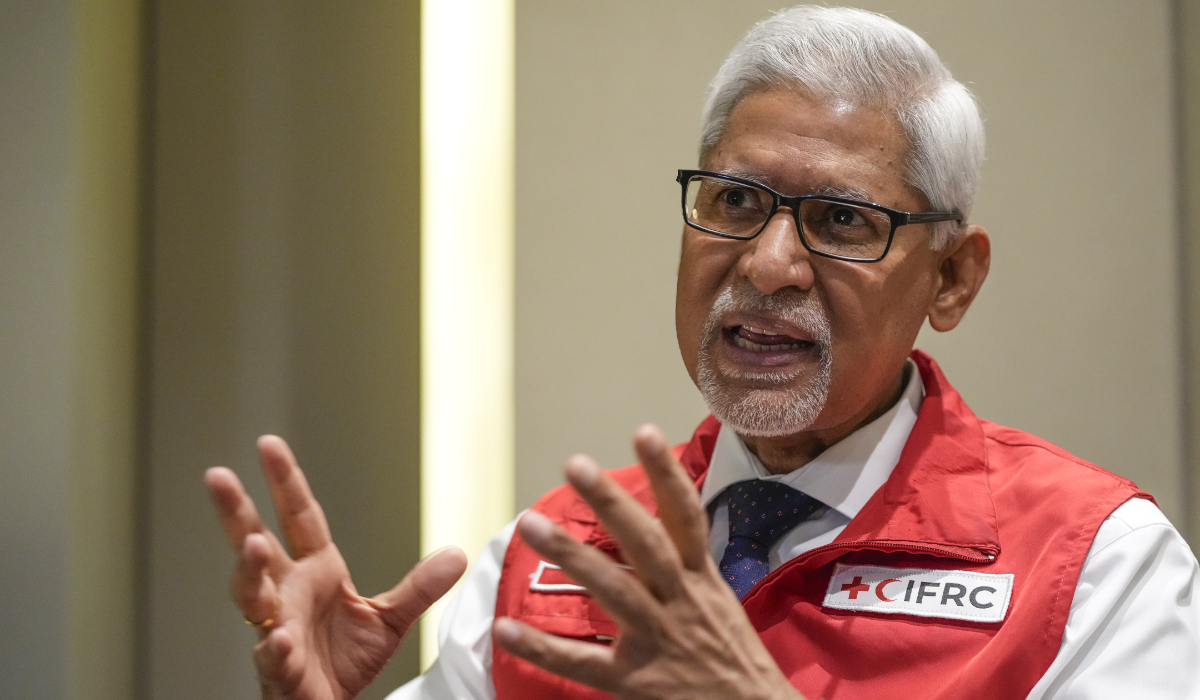SAO PAULO: Demonstrations have taken place in several of Latin America’s biggest cities against Israel’s ongoing military operation in Gaza since the war broke out in the Palestinian enclave in October.
Indigenous peoples have been among the protesters, with many of them issuing public letters in support of the Palestinian people.
In Bogota, Palestinian organizations and Colombians have staged a number of demonstrations that have included Embera Indigenous activists.
Inhabitants of the Choco region in northern Colombia and adjacent areas since time immemorial, the Embera have been displaced by the armed conflict between left-wing guerrillas, right-wing paramilitary groups and the army.
They have called on the government to ensure a safe territory for them in their region.
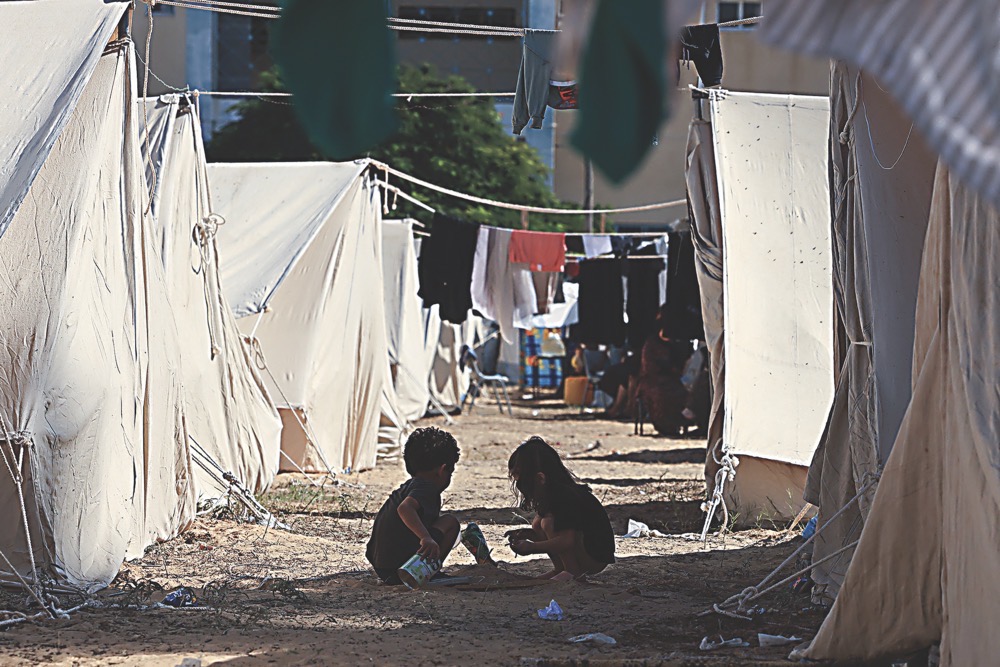
Aid officials say conditions in Gaza are worse and calls for unhindered aid deliveries. (AFP)
At some marches, Embera activists have walked side by side with supporters of the Palestinian cause and have carried Palestinian flags.
Other Indigenous nations have also expressed solidarity with Palestine, such as the signatories of a public letter of support to Colombian President Gustavo Petro, who since the start of the Gaza conflict has sided with the Palestinians, leading to fierce criticism from his opponents.
The letter was published in November by the Regional Indigenous Council of Cauca — known by the Spanish acronym CRIC — which gathers eight Indigenous groups in southwest Colombia.
On Dec. 4, CRIC published another letter that read: “We want to express our total and deepest solidarity to the Palestinian people, who have been suffering for 56 days a true genocide at the hands of the Zionist State of Israel.”
The letter added that Israel is using the conflict with Hamas as an excuse to kill Palestinian civilians, especially women and children, in violation of international law. It accused the UN, especially the Security Council, of ignoring the crisis.
“The struggle and resistance of the Palestinian people is the struggle of all Indigenous peoples,” the letter read.
“As Indigenous peoples, we fully identify with the suffering of the Palestinian people, because it reminds us of the genocide that we ourselves have experienced.”
Israel mounted its military campaign in Gaza after the Palestinian militant group Hamas launched an unprecedented cross-border attack on southern Israel on Oct. 7, killing some 1,200 people, most of them civilians, and kidnapping 240 others.
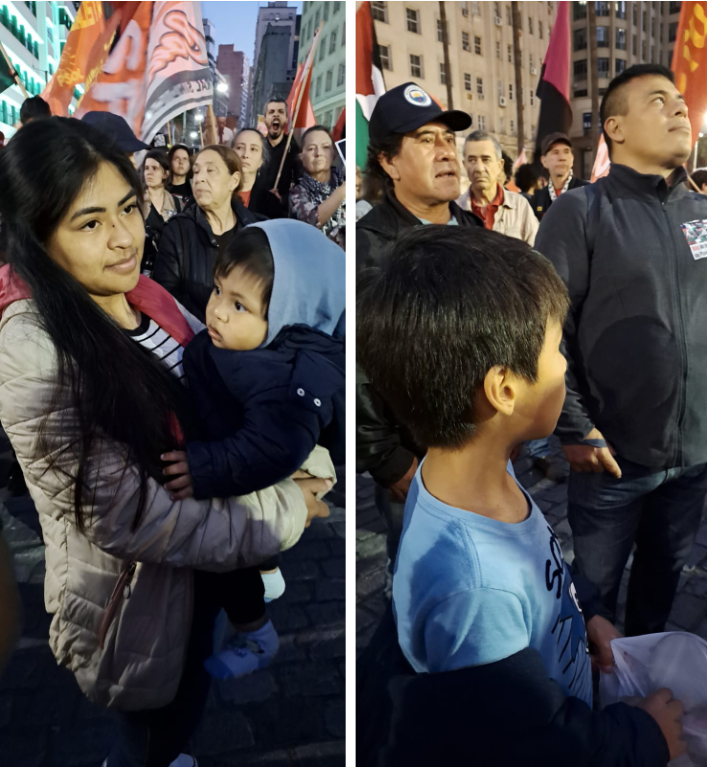
In Bogota, Palestinian organizations and Colombians have staged a number of demonstrations. (Supplied)
Although Israel enjoyed initial sympathy from the international community, its response in Gaza, which has resulted in more than 21,000 deaths, according to the Hamas-run health ministry, has seen public opinion swing in favor of the Palestinians.
Many critics of Israel have argued that its treatment of the Palestinian people in Gaza and the West Bank, the continued illegal occupation of Palestinian land by Jewish settlers, and the failure to create an independent Palestinian state provoked the Hamas attack.
Some have even accused Israel of using the conflict to drive the Palestinian people out of Gaza altogether so that Israelis can settle the land in their stead — a narrative all too familiar to Latin America’s Indigenous communities.
Israel itself has denied these accusations, insisting it does not intend to reoccupy the Gaza Strip and merely seeks to eliminate the threat posed to its security by Hamas and to rescue the hostages.
Jhoe Sauca Gurrute, a member of the Kokonuko people and one of CRIC’s leaders, told Arab News that many Indigenous groups have collaborated to gather donations and send them to Palestine in recent weeks.
“Israel is trying to exterminate the Palestinians. That’s not only a physical attack, but also a spiritual and cultural one. They want to erase the Palestinian identity,” he said, adding that the Colombian media portrays Palestinians as the villains.
“The far right uses the media to attack President Petro as well due to his support for Palestine.”

Organized Indigenous groups have also been taking part in protests. (Supplied)
Sauca said many Indigenous nations still struggle for their traditional territories in Colombia. “There are 115 different peoples in our country, and many of them are only now recovering their identity after decades of forced silence. The fight for Indigenous territories is continuous,” he added.
Organized Indigenous groups have also been taking part in protests against Israel’s attacks in Mexico’s capital and other cities.
Soledad Ortiz Vasquez, a municipal agent in the city of Santa Maria Yosoyua in the southern state of Oaxaca, is one of the Indigenous leaders who have been promoting the participation of such groups in pro-Palestine marches.
A member of the Mixtec people, she is a feminist leader and one of the heads of the Observatory of the Peoples’ Human Rights, an international organization founded in Mexico that monitors and denounces human rights violations of Indigenous groups.
“For Indigenous peoples, territory is something sacred. Our rivers, mountains, woods and lands are sacred,” Ortiz told Arab News.
“That’s why our struggle is the same struggle of several peoples in the world, including the Palestinians.”
She said “genocide” is being committed in Gaza, and Mexico’s Indigenous peoples repudiate the indiscriminate killing of civilians by Israel.
“For years, they’ve been limiting Palestinian lands with walls and fences. It’s like apartheid. And now the Israelis want them to go away. That’s not fair,” Ortiz added.
In Mexico, the Mixtec and many other Indigenous nations live in communal lands, but such territories have for decades suffered pressure from mining and agribusiness interests, leading several groups to organize resistance.
“For many years, past administrations have conceded licenses for gold, silver and coal mining endeavors in our territories. Some of them caused irrecoverable damage to Indigenous lands,” Ortiz said.
That is the case in Magdalena Ocotlan, a city in Oaxaca where a Canadian mining company polluted nearby rivers and groundwater, she added.
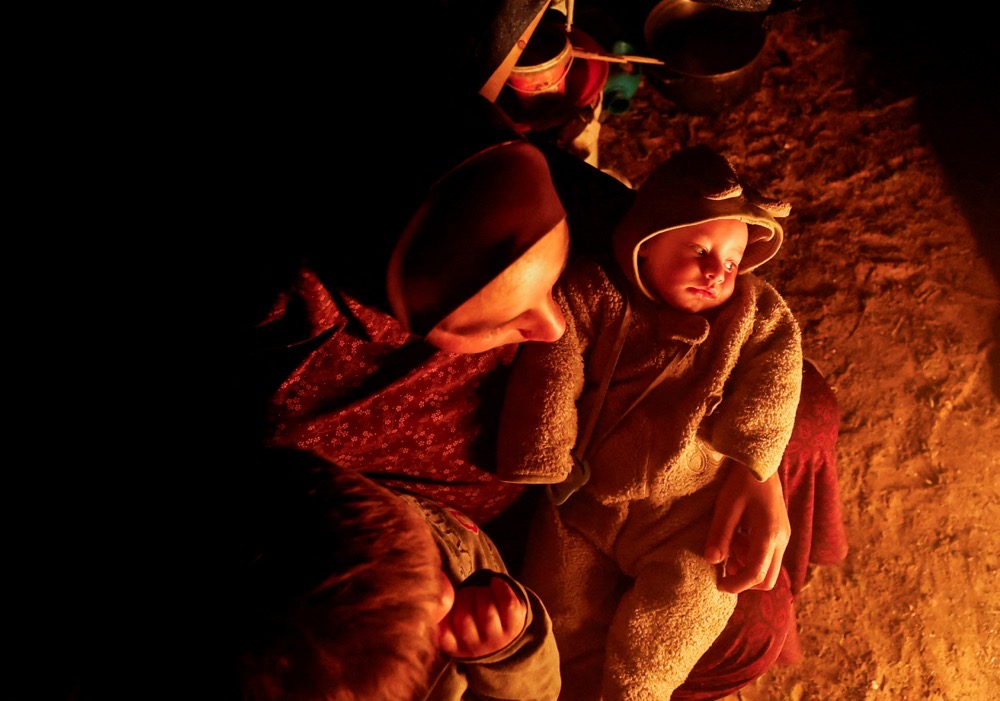
Palestinians who fled their houses due to Israeli strikes shelter in a tent in Rafah. (Reuters)
“In other regions, paramilitary groups have taken control over large areas and expelled the Indigenous villagers. We’ve always needed to struggle for our territories. We’d give our lives for them,” she said.
In Brazil, various Indigenous groups have expressed solidarity with the Palestinians, such as the Guarani Kaiowa from Mato Grosso do Sul state, who released a video in which activists salute Gazans in their original Guarani language.
“They (the Palestinians) have the same right to struggle that we, the Guarani Kaiowa, have. Long live Palestine,” they say in the video.
In Porto Alegre, capital of Rio Grande do Sul state where a large Palestinian community lives, protests against Israel have been promoted almost every week since October. Members of the Kaingang Indigenous people have been present at every march.
“The situation in Gaza became unbearable. Obviously people would react. That’s what happened,” said Odirlei Fidelis, an activist who lives in the Kaingang village of Van Ka, located in the rural area of Porto Alegre.
The identification of Brazilian Indigenous groups with the plight of the Palestinians is natural, he added.
“We face the same kind of discrimination that they face every day. We’re confined inside our territories and there are no policies to help us. Our rights and our sovereignty are violated all the time,” he said, adding that like the Palestinians, the Brazilian Indigenous peoples have to “ask the oppressor’s authorization to do anything they need.”
Even the insufficient lands granted to the Kaingang have been coveted by big landowners, who at times manage to persuade Indigenous leaders to occupy part of them, weakening the collective organization and creating divisions among the villagers.
Last week, Fidelis recalled, the Brazilian Congress annulled the vetoes that had been imposed by President Luiz Inacio Lula da Silva in a bill concerning land grants for Indigenous peoples.
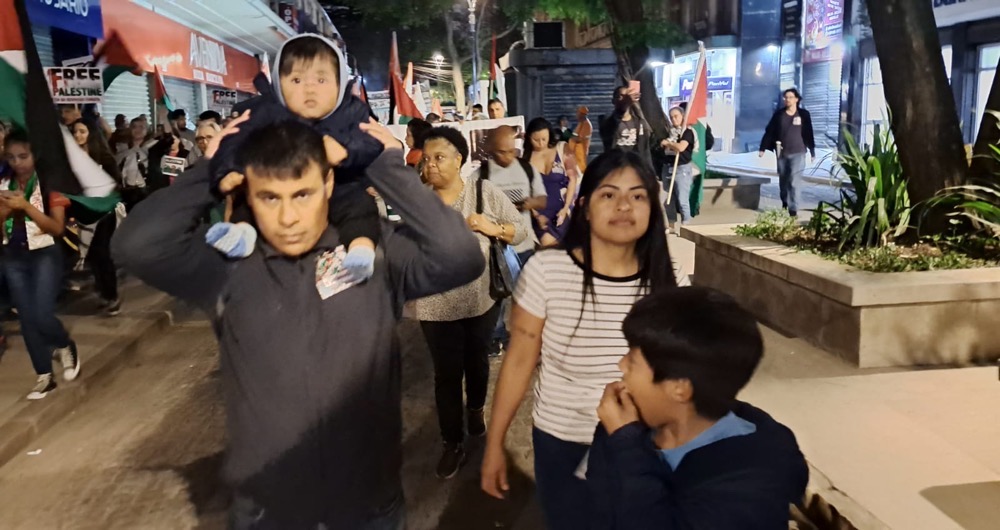
Indigenous nations have also expressed solidarity with Palestine. (Supplied)
The bill establishes that only the Indigenous groups that occupied their traditional territories in 1988, when the Constitution was promulgated, have the right to be granted their lands now by the government.
Lula tried to impede the bill’s approval, but the agribusiness bloc in Congress was stronger and formed the majority.
Critics of the bill say it contradicts the dispositions of the Constitution and ignores the fact that many Indigenous peoples were violently displaced from their territories, so they could not occupy their traditional lands as they wished to.
“We’ve been defeated. Although Lula defends our interests, we felt that his administration failed to fight for us as much as possible in that case,” Fidelis said.
Many Kaingang groups have been living in roadside camps, waiting for a land grant. “We’re peaceful, but we’ll keep fighting for our rights. We’re oppressed every day. We feel like Palestinians, surrounded by Israelis. We’ll resist like them,” Fidelis said.



















